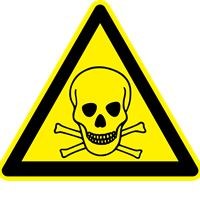(LUXEMBOURG) – EU Council and Parliament reached a provisional deal Monday on a revised regulation which sets further restrictions to the presence of persistent organic pollutants in waste.
The agreement paves the way to setting stringent limits for these chemicals in waste, preventing them from re-entering the economy through recycled materials. Existing limits have been tightened for five substances and new limits have been agreed for four new substances. This includes the substance Perfluorohexane sulfonic acid (PFHxS), listed recently as a POP substance in the Conference of the Parties of the Stockholm Convention. This swift action sends an extremely powerful message about the diligence and commitment of the EU to deal with POPs in waste, and to lead the way toward a toxic-free environment internationally.
The Council and Parliament therefore agreed to introduce new chemicals on the list of persistent organic pollutants and to restrict their presence in waste by strengthening the concentration limit values.
The terms of the provisional agreement were the following:
- PFOA: the Council and Parliament include PFOAs into the regulation. The maximum limit value was set at 1 mg/kg for PFOA and its salts and at 40 mg/kg for PFOA-related compounds, with a review clause to re-evaluate the situation, 5 years after the entry into force of the regulation.
- Dioxins and furans: (PCDDs/PCDFs and dl-PCBs): the limit value for dioxins and furans was set at 5 µg/kg. The limit value for these substances in domestic ashes and soot will apply from 1 January 2025. The value limits for these substances in fly ashes from biomass units for heat and power production will apply one year after the entry into force of the regulation, with a transitional value of set at 10 µg/kg in the meantime.The purpose is to allow member states’ authorities to examine the situation in further detail in order to implement the regulation effectively. Member States would collect and make the data available by 1 July 2026 at the latest. The limit values will be reviewed 5 years after the entry into force of the regulation.
- PFHxS: the limit value was set at 1mg/kg for PFHxS and its salts and at 40mg/kg for PFHxS related compounds. The values will be reviewed 5 years after the entry into force. This substance was not initially included in the Commission’s proposal but the colegislators added it, following a decision of the Conference of Parties to the Stockholm Convention, to add this substance in Annex A of the Convention on 9 June.
- HBCDD: the colegislators agreed on a two-step limit value reduction at 500mg/kg at the entry into force of the regulation and a review clause to lower that value to 200mg/kg, 5 years after entry into force of the regulation. This is to allow the demolition sector to adapt while sending a signal for them to improve their sorting methods.
- PBDE: the agreement foresees a three-step approach with a limit value set at 500mg/kg at the entry into force of the regulation; an automatic reduction to 350 mg/kg, 3 years after the entry into force; and another automatic reduction to 200mg/kg, 5 years after the entry into force, provided that the limit value to place this substance on the market is not higher. This is to avoid a situation where a product can be placed on the European market legally (Annex I), but is considered POP waste once it is withdrawn from the market (Annex IV). Annex 1 is set to be reviewed meanwhile.
- SCCPs: the colegislators agreed to set the limit value at 1500mg/kg with a review clause 5 years after the entry into force.
- In addition, the Commission will assess whether to amend EU waste legislation to assess if waste containing any persistent organic pollutants exceeding the concentration limits indicated in Annex IV to the POP regulation should be classified as hazardous.
Mandate for negotiations with the European Parliament on the amendment of the POP regulation + COR 1
Commission proposal to amend the annexes to the POPs regulation



